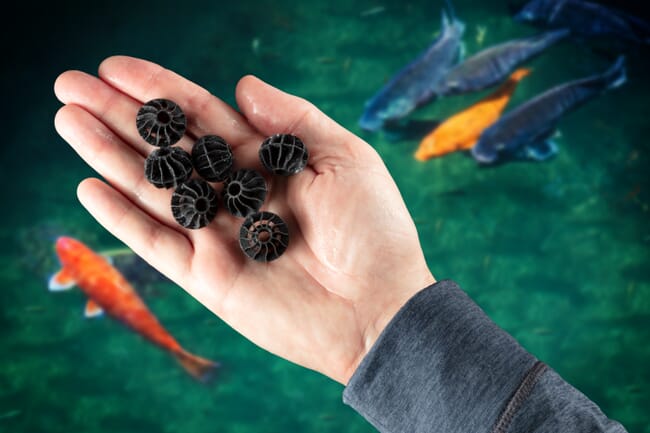
© Warden Biomedia
Biopebble, a next-generation filter media developed by Warden Biomedia in partnership with Cranfield University, has shown promise for improving the efficiency of RAS systems by lowering the energy input required by the effluent treatment process. The spherical design requires less energy to be agitated in solution than other media, improving wastewater treatment efficiency.
The new Biopebble media, which can be made from 100 percent recycled plastics, features a structure and surface texture designed specifically to result in optimum biofilm attachment and biological treatment performance. When tested against other filter media, Biopebble showed high removal rates of phosphorous and ammonia, both of which are found in large quantities in RAS effluent.
In addition to reduced energy requirements, the design offers significant benefits for RAS including improved biological commissioning times and process security, higher biomass retention, increased wastewater treatment capacity, reductions in required tank volume, and the generation of healthy and thin biofilms.
Following successful pilot and full-scale trials, the new filter design has now been released for application in commercial aquaculture. The media is manufactured in the UK, available in both high-quality recycled or virgin polypropylene, and is fully recyclable at the end of its process life, contributing to a circular economy.




